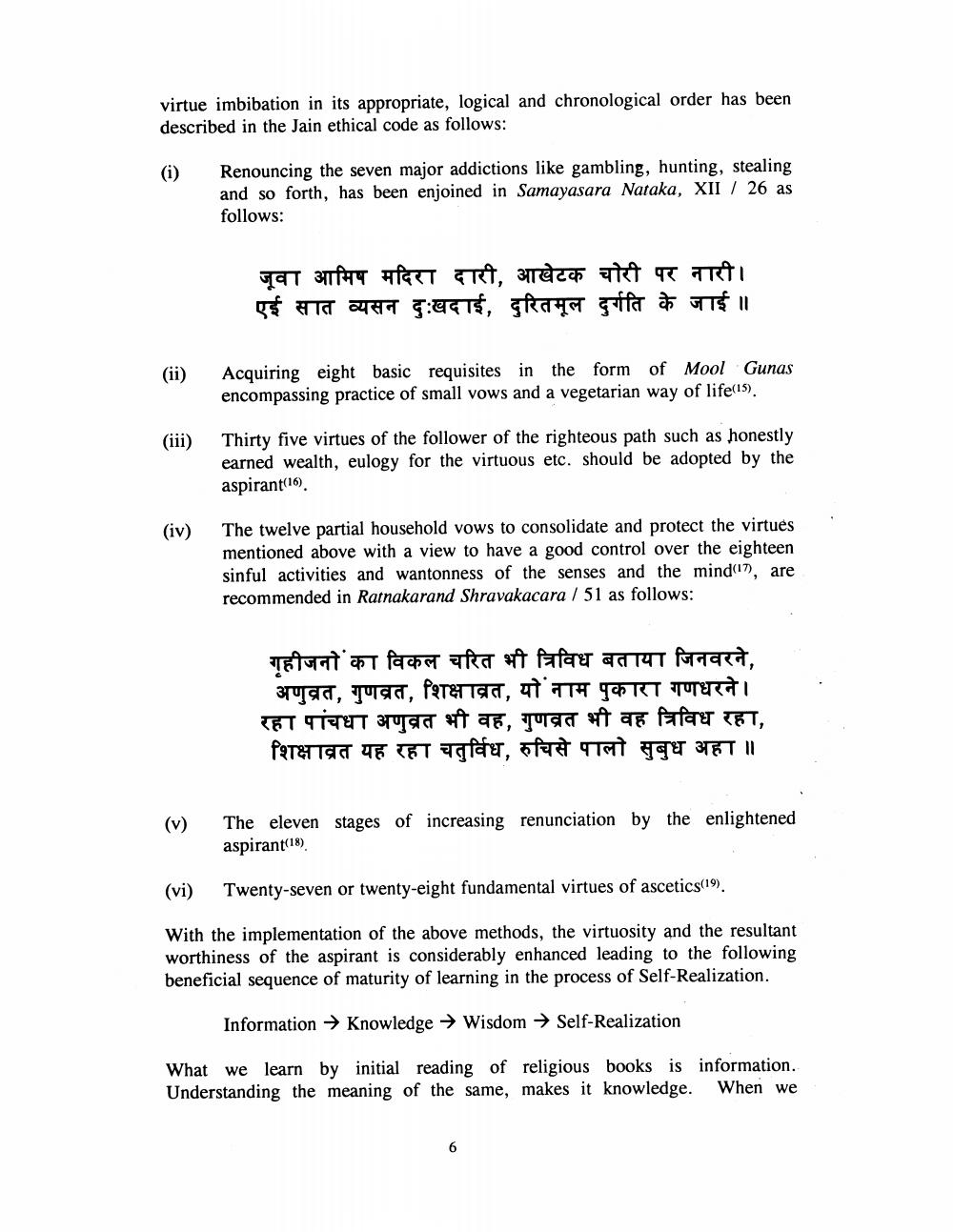Book Title: Jain Approach To Self Realization Author(s): Atmanandji Maharaj Publisher: Atmanandji Maharaj View full book textPage 6
________________ virtue imbibation in its appropriate, logical and chronological order has been described in the Jain ethical code as follows: (i) (ii) (iii) (iv) (v) Renouncing the seven major addictions like gambling, hunting, stealing and so forth, has been enjoined in Samayasara Nataka, XII/ 26 as follows: जुवा आमिष मदिरा दारी, आखेटक चोरी पर नारी । एई सात व्यसन दु:खदाई, दुरितमूल दुर्गति के जाई ॥ Acquiring eight basic requisites in the form of Mool Gunas encompassing practice of small vows and a vegetarian way of life Thirty five virtues of the follower of the righteous path such as honestly earned wealth, eulogy for the virtuous etc. should be adopted by the aspirants The twelve partial household vows to consolidate and protect the virtues mentioned above with a view to have a good control over the eighteen sinful activities and wantonness of the senses and the mind, are recommended in Ratnakarand Shravakacara / 51 as follows: गृहीजनों का विकल चरित भी त्रिविध बताया जिनवरने, अणुव्रत, गुणव्रत, शिक्षाव्रत, यो नाम पुकारा गणधरने । रहा पांचधा अणुव्रत भी वह गुणव्रत भी वह त्रिविध रहा, शिक्षाव्रत यह रहा चतुर्विध, रुचिसे पालो सुबुध अहा ॥ The eleven stages of increasing renunciation by the enlightened aspirant (vi) Twenty-seven or twenty-eight fundamental virtues of ascetics, With the implementation of the above methods, the virtuosity and the resultant worthiness of the aspirant is considerably enhanced leading to the following beneficial sequence of maturity of learning in the process of Self-Realization. Information Knowledge → Wisdom → Self-Realization What we learn by initial reading of religious books is information. Understanding the meaning of the same, makes it knowledge. When we 6Page Navigation
1 ... 4 5 6 7 8 9 10
